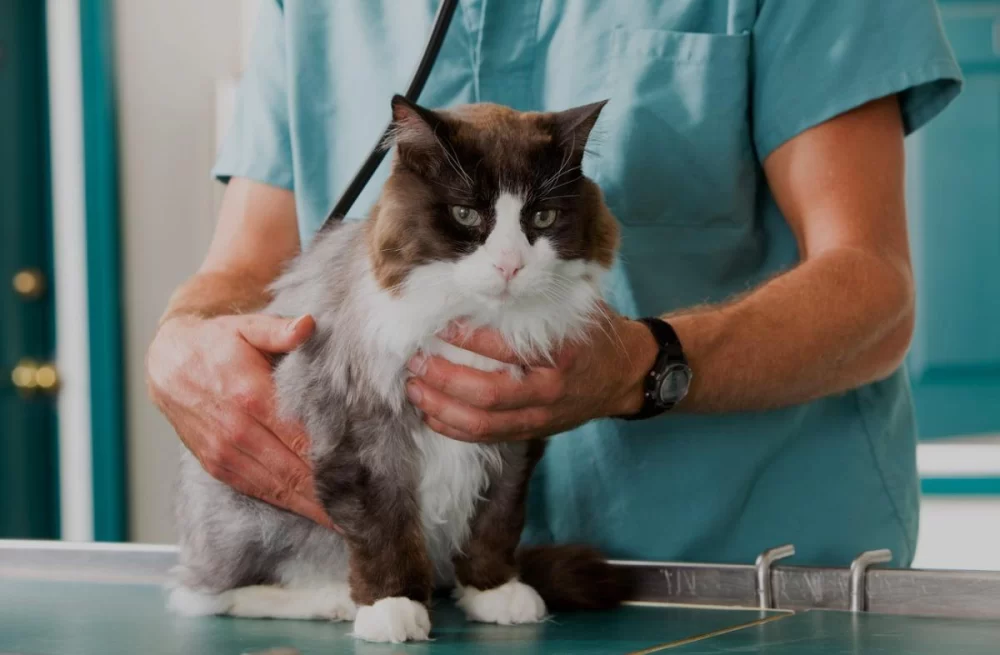- Understanding Heartworm Disease in Pets
- Symptoms and Diagnosis of Heartworm in Pets
- Effective Treatment Options for Pets with Heartworm
- Preventing Heartworm Disease in Pets
- Professional Veterinary Care and Support
1. Understanding Heartworm Disease in Pets
Heartworm disease is a serious and potentially fatal condition caused by parasitic worms transmitted through mosquito bites. These worms reside primarily in the heart, lungs, and associated blood vessels of infected pets, most commonly dogs and cats. Understanding the nature of this disease is crucial for pet owners, as early detection and proper veterinary care can make a significant difference in treatment outcomes.
Veterinary care for pets with heartworm involves a multifaceted approach, starting with awareness of how the disease spreads. Mosquitoes act as vectors by transferring larvae from one animal to another, allowing the parasites to mature inside the pet’s body. Over time, these worms can cause severe damage to vital organs, leading to symptoms that range from mild to life-threatening.
Unlike many infections, heartworm disease is often asymptomatic in early stages, which makes regular veterinary screenings essential. The complexity of heartworm’s life cycle requires veterinary teams to combine diagnostic tests such as blood assays and imaging to confirm infection and plan effective treatment strategies.
1.1 The Lifecycle and Impact on Pet Health
The heartworm lifecycle begins when an infected mosquito bites a pet, depositing immature larvae under the skin. These larvae migrate and mature over several months into adult worms. Adult heartworms can grow up to 12 inches long and obstruct the heart and pulmonary arteries, causing heart failure, lung disease, and other systemic issues.
Veterinary care providers stress the importance of early intervention because advanced heartworm disease is harder to treat and often requires hospitalization and prolonged medication. Without treatment, the prognosis can be poor, emphasizing the critical role of prevention and regular veterinary check-ups.
2. Symptoms and Diagnosis of Heartworm in Pets
Identifying heartworm disease early can be challenging since pets may not show obvious signs initially. Common symptoms include persistent coughing, fatigue after moderate activity, difficulty breathing, and weight loss. In advanced cases, pets might exhibit swelling in the abdomen due to fluid accumulation, fainting spells, or even sudden collapse.
Veterinarians recommend annual heartworm testing, especially in regions with high mosquito activity. Blood tests detect the presence of heartworm proteins, while imaging techniques like X-rays and ultrasounds help assess heart and lung damage. This thorough diagnostic approach allows for tailored veterinary care plans that address the severity of infection.
2.1 Real-Life Case Study: Max’s Recovery Journey
Max, a 5-year-old Labrador retriever, was brought to Hidden Brook Veterinary after his owner noticed lethargy and a persistent cough. Diagnostic testing confirmed advanced heartworm disease. Thanks to timely veterinary intervention, Max underwent a carefully managed treatment protocol involving medications to kill the worms, followed by strict exercise restriction to reduce stress on his heart.
Max’s story highlights how professional veterinary care, combined with owner compliance, can lead to successful recovery even in serious cases. His gradual improvement over several months reinforced the importance of early diagnosis and expert treatment.
3. Effective Treatment Options for Pets with Heartworm
Veterinary care for pets with heartworm is carefully customized based on the stage of infection and the overall health of the animal. The main goal is to safely eliminate adult worms and larvae, minimize complications, and restore health.
3.1 Medical Treatment Protocols
The standard treatment involves a series of injections with an arsenic-based drug called melarsomine, which kills adult heartworms. This treatment is usually preceded by medications such as doxycycline to target bacteria that live symbiotically with heartworms, reducing the risk of complications. Additionally, corticosteroids and other supportive therapies help manage inflammation and organ stress.
Strict exercise restriction during treatment is critical to prevent severe reactions and complications, as physical activity can dislodge dying worms causing blockages in the lungs or heart. This rest period can be challenging for pet owners, but it is vital for a positive outcome.
3.2 Monitoring and Follow-Up Care
After initial treatment, pets require close monitoring through repeat blood tests and imaging to confirm worm elimination and recovery progress. Veterinary professionals at Hidden Brook Veterinary offer comprehensive follow-up care to ensure pets regain their strength and remain heartworm-free.
4. Preventing Heartworm Disease in Pets
Prevention is always better than treatment when it comes to heartworm disease. Preventative medications are widely available and recommended for all pets at risk. These medications kill larvae before they mature into adult worms, effectively breaking the parasite’s lifecycle.
4.1 Choosing the Right Preventive Care
Preventive options include monthly chewables, topical treatments, and injectables that can protect pets for several months at a time. Selecting the right prevention depends on factors such as the pet’s age, lifestyle, and regional heartworm risk. Veterinary professionals can guide pet owners in choosing the best preventive regimen.
4.2 Environmental and Lifestyle Considerations
Minimizing mosquito exposure by avoiding outdoor activity during peak mosquito hours, using mosquito repellents safe for pets, and maintaining clean environments can further reduce risk. Educating pet owners about these practical measures enhances overall heartworm disease control.
5. Professional Veterinary Care and Support
Access to expert veterinary care is vital for managing heartworm disease effectively. Hidden Brook Veterinary specializes in comprehensive heartworm services, including diagnostics, treatment, prevention consultations, and follow-up care. Their compassionate approach ensures pets receive personalized attention tailored to their specific health needs.
Pet owners can rely on Hidden Brook Veterinary not only for medical treatment but also for guidance on nutrition, lifestyle, and preventive care, fostering long-term pet wellness. Stories like Max’s recovery demonstrate how professional veterinary care can transform lives and protect pets from the severe consequences of heartworm disease.
In conclusion, veterinary care for pets with heartworm requires a thorough understanding of the disease, timely diagnosis, effective treatment, and vigilant prevention. By partnering with experienced veterinary professionals, pet owners can safeguard their pets’ health and enjoy many happy years together.












